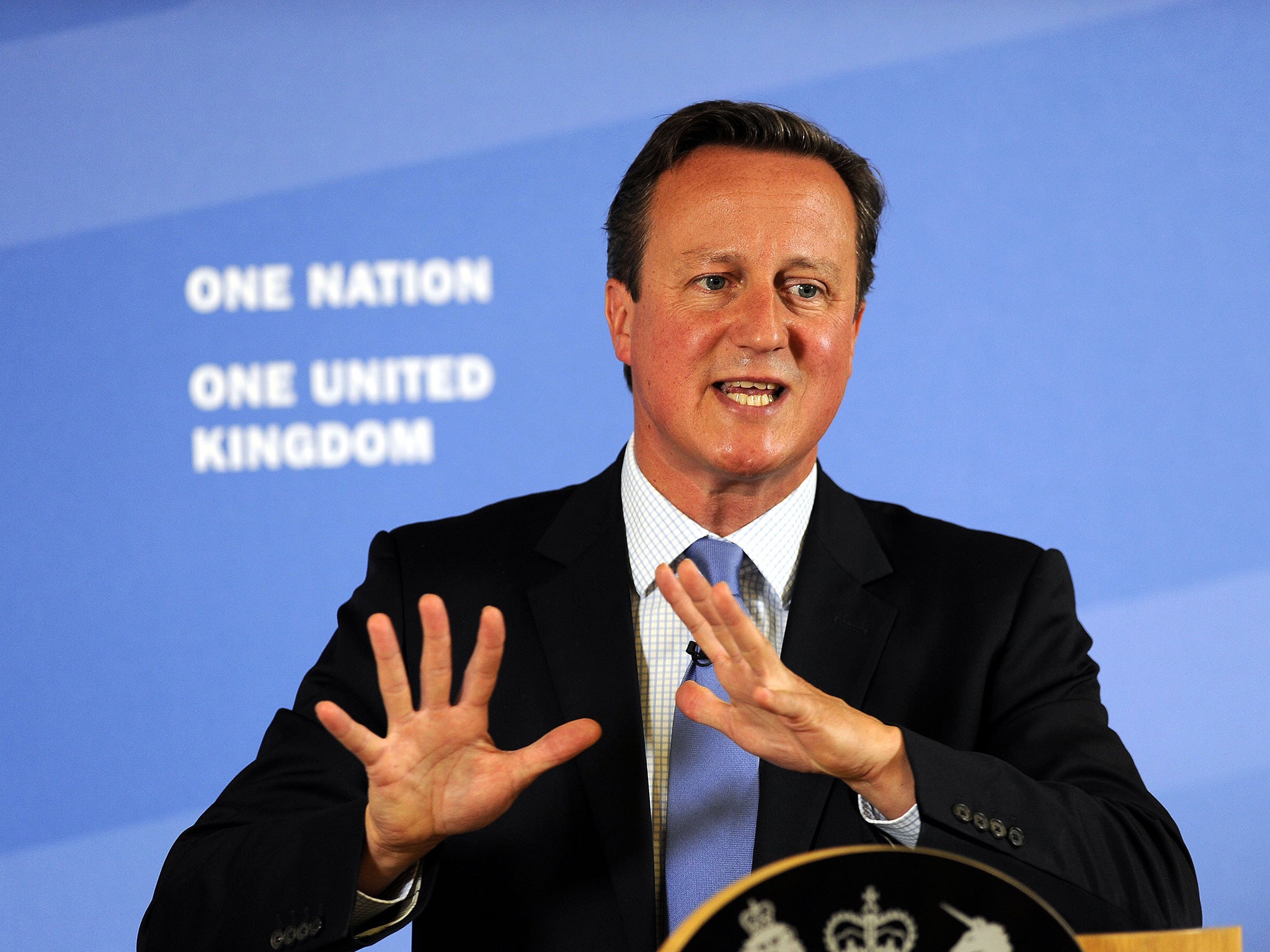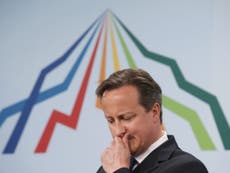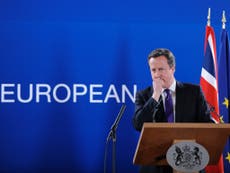Cameron's luck has held so far on Europe - but that may be about to change
Ructions within Labour may no longer be as enjoyable for Cameron as they would once have been


That it’s fashionable to say that David Cameron is a lucky politician doesn’t make it any less true. He’s a Prime Minister who very nearly made his unenviable mark by presiding over the break-up of the United Kingdom, but didn’t, and then went on to win an overall majority in an election that he was doubtful would even leave him at the head of the biggest single party.
Nowhere has his luck held more - so far - than over Europe, which by the normal laws of political dynamics should have been the issue that undermined his leadership more than any other. It’s for future historians to decide how far the promise of a referendum, made in early 2013, helped to contain the Ukip surge which had so threatened the Conservatives. But it more or less papered over the deep divisions in his party up to and during the election.
Now it seems Cameron can savour the spectacle of an opposition showing signs of returning to divisions buried for a quarter of a century. It’s not just that Labour’s new leader, Jeremy Corbyn (who has a long track record of Euroscepticism) had initially declined to rule out campaigning against continued EU membership if he doesn’t like what Cameron brings back from his negotiations in Brussels. On Tuesday, the TUC approved a motion implicitly contemplating for the first time since the late 1980s withdrawal from the EU, if Cameron secures the dilution of workers rights in any new deal for Britain.
Indeed, Europe was a key (though not the only) reason why so many former Shadow Cabinet members decided not to serve under Corbyn. There is nothing particularly untoward about this; plenty of senior Tories, from Ken Clarke down, declined service under Iain Duncan Smith because of his deep-dyed anti-Europeanism.
One of those who did agree to serve Corbyn, Shadow Foreign Secretary Hilary Benn, stood his ground in favour of continued EU membership, the preferred option of most Labour MPs. Benn made the point that those anxious about workers’ rights should concentrate on the return of a Labour government (which would be able to opt back into any EU employee provisions that Cameron had extracted himself from) instead of hankering after EU withdrawal. And yesterday he got a result when Labour officials said that Benn’s stance was indeed the policy. In the process Benn demonstrated - including, perhaps, to the Shadow Cabinet refuseniks - that, by insisting on a policy within your portfolio, you can to get your way over the instincts of the party leader.
True, some MPs are sceptical about how embedded that policy is. Indeed the argument may not be quite over. Yesterday the GMB union submitted a resolution to the Labour conference trying to commit the party to a “no” campaign if Cameron “scales back... employment and social rights” in his negotiations. It may seem terribly retro to take the Labour party conference so seriously, but Corbyn, who cut his political teeth in the 1980s, will do just that. A vote in favour of the GMB motion could, in theory at least, give him just the cover he needs to reverse the Benn position in favour of a “wait and see” stance, causing fresh divisions and prompting shadow ministerial resignations.
These ructions within Labour may no longer be as enjoyable for Cameron as they would once have been. The “Social Chapter” - which John Major famously opted out of, and Tony Blair opted back into - does indeed have a totemic force in the Conservative Party. But there have been growing doubts whether Cameron really intends to opt out of it all over again. Partly, its provisions (parental leave, holiday pay for part-time workers, or whatever) are scattered through the body of EU regulations and would be difficult to unravel.
Much more importantly, the French are especially likely to resist what they would see as “social dumping” - in other words, giving British business a competitive advantage over its European counterparts by reducing its obligations to employees, and costs. Finally Cameron may, however reluctantly, take the view that it would be better to have Labour on board to offset a vigorous no campaign in which some of his own Cabinet ministers could participate.
Cameron is likely, however, to seek at least some exemption from the directive imposing a 48-hour maximum working week, which would fall outside any literal interpretation of the GMB’s conference resolution but delight many employers. But we don’t actually know what he’s going for because the government has kept its cards so hidden. George Osborne is said to have told a meeting of senior officials on the EU negotiations words to the effect of “we’ll decide what our objectives are when we know whether we have achieved them”.
Which is one reason why a reform agenda, published today by the influential Tory MP Andrew Tyrie and proposing a high-powered new body to ensure the EU does less of what could better be done by member states, is important. Filling at least some of the vacuum left by the notable absence of a government EU White Paper, it sensibly implies that the government could be less reticent about promoting changes which would be in the interests of the EU, and accepting that it may not achieve all of them in a single negotiation.
Cameron may care less about the EU than the British union, but he wants to win a referendum. And while the combination of the eurozone and refugee crises could switch some British voters off EU membership, it could also – Cameron’s luck again — make his European partners more inclined to help him on the grounds that Britain’s departure could badly damage an EU that is fragile enough already. But we have passed a tipping point where Europe is just a matter of party politicking. Labour is still a player in the European debate. And that’s why Europe moved so fast to the centre of the battle over whether Labour is still a serious party.



Join our commenting forum
Join thought-provoking conversations, follow other Independent readers and see their replies